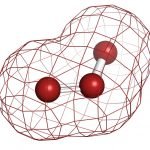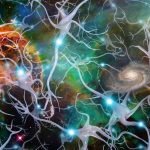Neurodevelopment in Preemies
Node Smith, ND
Two research studies were presented on neurodevelopment of premature babies at the 2018 annual meeting of the Pediatric Academic Society. One of the links between macronutrient consumption and another on the role of erythropoietin (EPO) in neurodevelopment, and its link to premature births.1
Nutrition’s influence on premature infant brain volume
The number of macronutrients (carbohydrates, proteins and lipids) as well as total calories was seen to significantly affect brain volume and white matter in preemies. This may be especially important during the final weeks of gestation, when the fetal brain goes through a dramatic “growth spurt.” During the final weeks in utero, the fetal brain increases not only in size, but structural complexity as well.
According to the CDC, 1 in 10 births occurred before 37 weeks gestation
In 2016, according to the CDC, 1 in 10 births occurred before 37 weeks gestation – the defining time marker for premature birth. Low birth weight is recognized as a significant risk factor for growth failure as well as neurocognitive deficits. Though neonatal intensive care units (NICU) specifically give nutritional support to these infants to help with brain development, their growth rates are often much slower than full-term babies.
MRI techniques were used to determine newborns who were most in need
Few studies have actually looked at the effect of early macronutrient intake and caloric intake on the brain’s structural development in these pre-term babies. For this study, MRI techniques were used to determine newborns who were most in need.
The study looked at a total of 69 infants born younger than 32 weeks gestation, and weighing less than 1,500 grams.
Findings
The study “found a significantly negative association between fractional anisotropy and cumulative macronutrient/caloric intake,” says Catherine Limperopoulos, Ph.D., director of Children’s Developing Brain Research Laboratory and senior author of the research. “[a] negative association between macronutrient/caloric intake and regional brain volume in the cortical and deep gray matter, cerebellum and brainstem” was also found. This later finding was suspected to be due to the longer period of time infants were fed in the NICU.
This study may underline the extreme importance of nutrition during pregnancy
From a naturopathic perspective, this study may underline the extreme importance of nutrition during pregnancy, with specific attention to third trimester macronutrient intake in pregnancies which may be at risk for premature delivery.
EPO – neuroprotectivity in Infants may be epigenetically regulated
EPO is a cytokine, known to protect neurons, and even repair them. It’s unknown the mechanism of its action, but recent research suggests that it may be altering genes related to the growth and development of neurons as well as inflammation and hypoxia. The study presented at the 2018 annual meeting of the Pediatric Academic Society was a pilot study.
The research is looking at the use of EPO as a therapeutic approach to supporting neurodevelopment in neonates born prematurely.
The study looked at whether micro-preemies who were given EPO had significant and specific changes in DNA methylation and gene expression for regulation of a physiological response to stressors such as hypoxia, oxidative stress, and inflammation. Genes related to glial differentiation and myelin formation were also assessed.
Five genes were isolated as candidates that may be affected by EPO and affect neurodevelopment and protection:
- Neurogenin 1, a transcription factor that governs the progression of neurogenesis
- FOS like 1, implicated in development of cognitive deficits after oxygen depravation (hypoxia)
- Mitogen-activated protein kinase 8 interacting protein 2, encodes a scaffolding protein broadly expressed in the brain. Experimental models that lack this protein display autistic tendencies.
- Resistance to inhibitors of cholinesterase 8 homolog A, an essential player in generating new brain cells
Conclusion of the study
The conclusion of the study was: “These findings suggest that EPO’s neuroprotective effect may be mediated by epigenetic regulation of genes involved in the development of the nervous system and that play pivotal roles in how the body responds to inflammation and hypoxia.” This study was an offshoot of a larger study looking at the use of EPO in the treatment of preemies, and has not been published yet indexed in pubmed as of this writing.
Image Copyright: <a href=’https://www.123rf.com/profile_ondrooo’>ondrooo / 123RF Stock Photo</a>
 Node Smith, ND, is a naturopathic physician in Portland, OR and associate editor for NDNR. He has been instrumental in maintaining a firm connection to the philosophy and heritage of naturopathic medicine among the next generation of docs. He helped found the first multi-generational experiential retreat, which brings elders, alumni, and students together for a weekend camp-out where naturopathic medicine and medical philosophy are experienced in nature. Four years ago he helped found the non-profit, Association for Naturopathic ReVitalization (ANR), for which he serves as the board chairman. ANR has a mission to inspire health practitioners to embody the naturopathic principles through experiential education. Node also has a firm belief that the next era of naturopathic medicine will see a resurgence of in-patient facilities which use fasting, earthing, hydrotherapy and homeopathy to bring people back from chronic diseases of modern living; he is involved in numerous conversations and projects to bring about this vision.
Node Smith, ND, is a naturopathic physician in Portland, OR and associate editor for NDNR. He has been instrumental in maintaining a firm connection to the philosophy and heritage of naturopathic medicine among the next generation of docs. He helped found the first multi-generational experiential retreat, which brings elders, alumni, and students together for a weekend camp-out where naturopathic medicine and medical philosophy are experienced in nature. Four years ago he helped found the non-profit, Association for Naturopathic ReVitalization (ANR), for which he serves as the board chairman. ANR has a mission to inspire health practitioners to embody the naturopathic principles through experiential education. Node also has a firm belief that the next era of naturopathic medicine will see a resurgence of in-patient facilities which use fasting, earthing, hydrotherapy and homeopathy to bring people back from chronic diseases of modern living; he is involved in numerous conversations and projects to bring about this vision.










